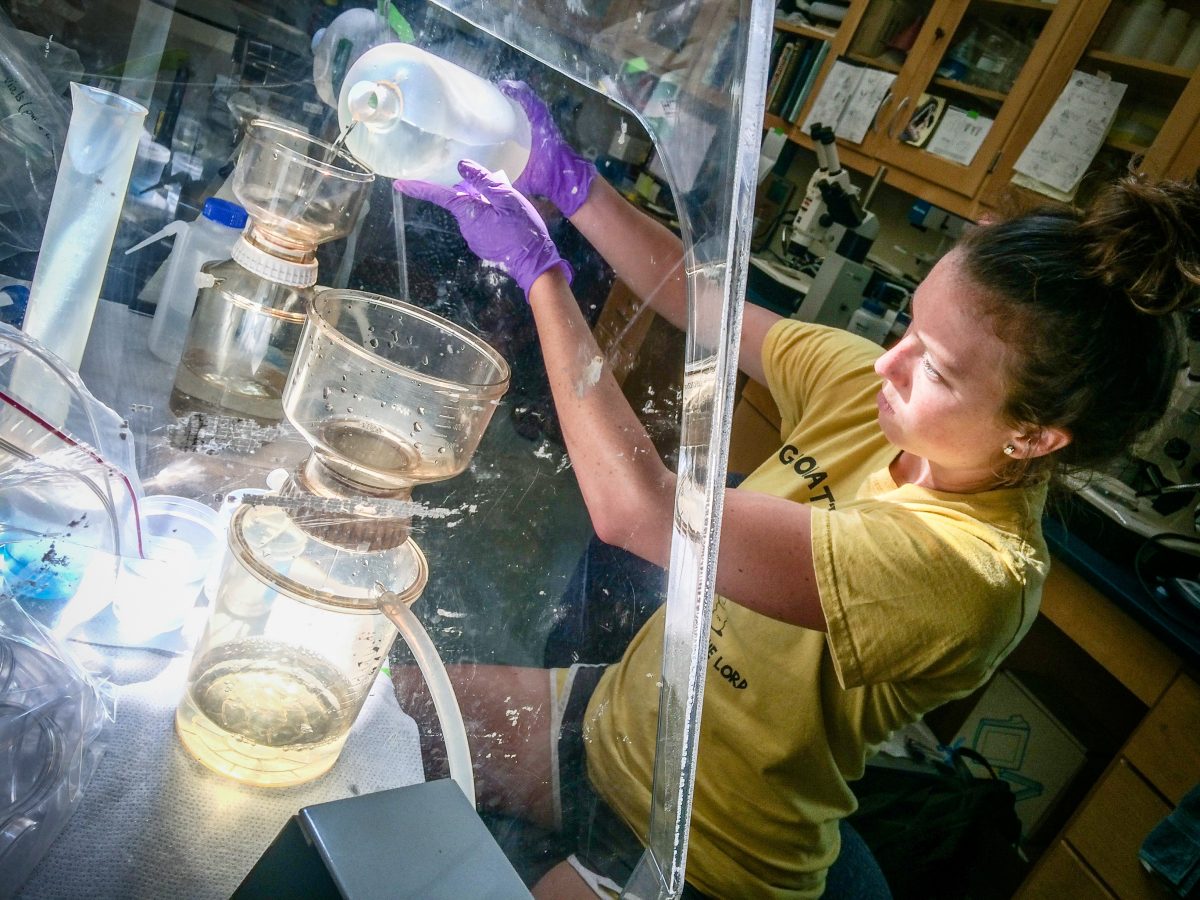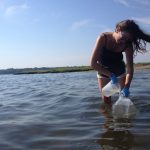Emily Seelen was recently funded through the National Science Foundation (NSF) Graduate Research Opportunities Worldwide program to conduct research with Dr. Erik Björn at Umeå University in Sweden. This opportunity is only available to active awardees of the NSF Graduate Research Fellowship Program. Emily is currently a PhD student in the UCONN Marine Sciences Department where her research is focused on mercury cycling in estuarine ecosystems. Even though mercury is a naturally occurring element, human activity has increased its abundance and altered its behavior in coastal waters. These changes potentially impact the incorporation of methylmercury, a more toxic form of mercury, into our aquatic resources including seafood. The degree of mercury accumulation in aquatic food webs has been shown to depend on the chemical form of methylmercury in the water column, and is related to the type of organic matter the methylmercury is bound to. In Sweden, Emily will use a molecular approach to describe the relationship between methylmercury and various types of natural organic matter in order to mechanistically understand how their interaction influences biotic uptake. The project is expected to last up to 9 months and will include advanced synchrotron and mass spectrometry work. Through this research, Emily hopes to improve mercury speciation models to more accurately predict mercury cycling and human exposure to methylmercury under climate change scenarios.
Current NSF Fellow awarded NSF GROW
Emily Seelen was recently funded through the National Science Foundation (NSF) Graduate Research Opportunities Worldwide program to conduct research with Dr. Erik Björn at Umeå University in Sweden. This opportunity is only available to active awardees of the NSF Graduate Research Fellowship Program. Emily is currently a PhD student in the UCONN Marine Sciences Department […]





